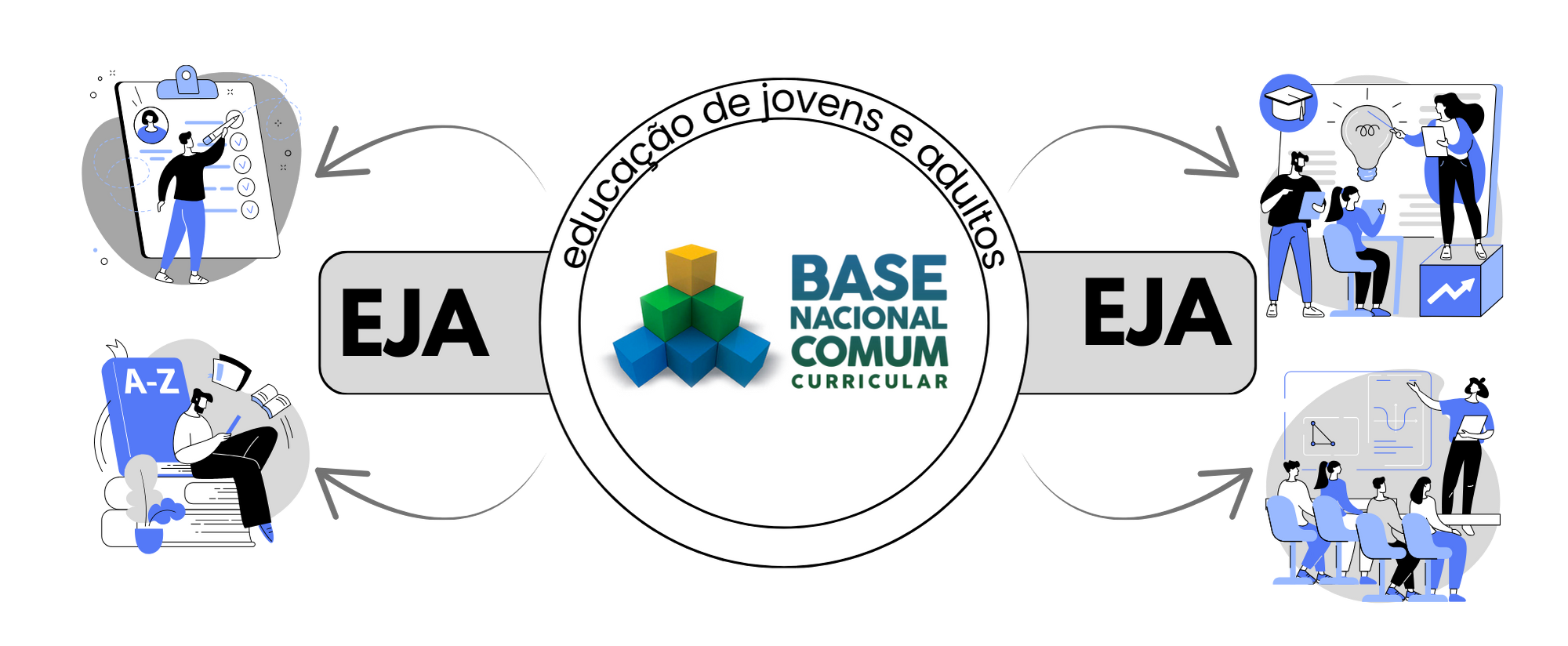The development of the curriculum based on the BNCC competency concept in itineraries for EJA
DOI:
https://doi.org/10.58951/dataset.2024.012Keywords:
Curriculum, Itineraries, EJAAbstract
The work analyzes the possibility of producing and developing curricula in Brazilian schools based on the concept of competencies as expressed in the National Common Curricular Base (Base Nacional Comum Curricular - BNCC), moving away from student training that focuses exclusively on syllabus content. This analysis begins by defining what the BNCC is, what “skills” are, and what a curriculum entails, with the aim of connecting these concepts and exploring whether it is possible to create a curriculum based on competencies. In this process, some criticisms of the BNCC and its competency-based approach will be discussed to understand its possibilities and limitations, including a description of a practice involving the use of itineraries in the context of adult education (EJA).
References
Almeida, M. E. B. de. (2023). Currículo: panorama histórico e abordagens conceituais. Texto de circulação restrita ao âmbito das atividades da disciplina Teoria do Currículo.
Brasil. (1996). Ministério da Educação. Lei de Diretrizes e Bases da Educação, nº 9394 de 26 de dezembro de 1996. MEC: Brasília, DF.
Brasil. (2018). Ministério da Educação. Base Nacional Comum Curricular. MEC: Brasília, DF. Disponível em: <http://basenacionalcomum.mec.gov.br/>. Acesso em: 14 nov. 2021.
Brasil. (2021). Ministério da Educação/Conselho Nacional de Educação (CNE)/Câmara de Educação Básica (CEB). Resolução nº 1, de 28 de maio de 2021, institui Diretrizes Operacionais para a Educação de Jovens e Adultos nos aspectos relativos ao seu alinhamento à Política Nacional de Alfabetização (PNA) e à Base Nacional Comum Curricular (BNCC), e Educação de Jovens e Adultos a Distância. MEC: Brasília, DF.
Catelli Jr., R. (2019). O não-lugar da Educação de Jovens e Adultos na BNCC. In: Catelli Jr., R. & Cássio, F. Educação é a base? 23 educadores discutem a BNCC. São Paulo: Ação Educativa.
Houaiss, A. (2009). Dicionário eletrônico Houaiss de Língua Portuguesa. Rio de Janeiro: Editora Objetiva.
Macedo, E. (2017). Mas a escola não tem que ensinar?: Conhecimento, reconhecimento e alteridade na teoria do currículo. Revista Currículo sem Fronteiras, 17(3), 539 – 554.
Nóvoa, A. (1991). Para o estudo sócio-histórico da gênese e desenvolvimento da profissao docente. Teoria & Educacao, 4, 109-139
Oxford English Dictionary s.v. “Curriculum (n.),” Julho, 2023. Oxford University Press. Acesso em 20 de Agosto de 2024. https://doi.org/10.1093/OED/3437545867.
Perrenoud, P. (1998). Construir competências desde a escola. Porto Alegre: Artes Médicas Sul.
Perrenoud, P. (2000). Construindo competências. [Entrevista com Philippe Perrenoud, Universidade de Genebra, por Paola Gentile e Roberta Bencini]. In: Nova Escola (Brasil), Setembro, 2000, pp. 19-31. Disponível em: <https://www.unige.ch/fapse/SSE/teachers/perrenoud/php_main/php_2000/2000_31.html>. Acesso em: 04 de Junho de 2023.
Perrenoud, P.; Thurler, M. G. (2002). As competências para ensinar no século XXI. A formação dos professores e o desafio da avaliação. Porto Alegre: Artmed Editora.
Sacristán, J. G. (2010). La función abierta de la obra y su contenido. Revista Electrónica Sinéctica, 34, 11-43.

Downloads
Published
How to Cite
Issue
Section
License
Copyright (c) 2024 Igor Golinelli, Franciane Zanetti Campanerut

This work is licensed under a Creative Commons Attribution 4.0 International License.
This journal publishes its Open Access articles under a Creative Commons license (CC BY 4.0).
You are free to:
Share — copy and redistribute the material in any medium or format for any purpose, even commercially.
Adapt — remix, transform, and build upon the material for any purpose, even commercially.
The licensor cannot revoke these freedoms as long as you follow the license terms.
Under the following terms:
Attribution — You must give appropriate credit, provide a link to the license, and indicate if changes were made. You may do so in any reasonable manner, but not in any way that suggests the licensor endorses you or your use.
No additional restrictions — You may not apply legal terms or technological measures that legally restrict others from doing anything the license permits.
Notices:
You do not have to comply with the license for elements of the material in the public domain or where your use is permitted by an applicable exception or limitation.
No warranties are given. The license may not give you all of the permissions necessary for your intended use. For example, other rights such as publicity, privacy, or moral rights may limit how you use the material.




